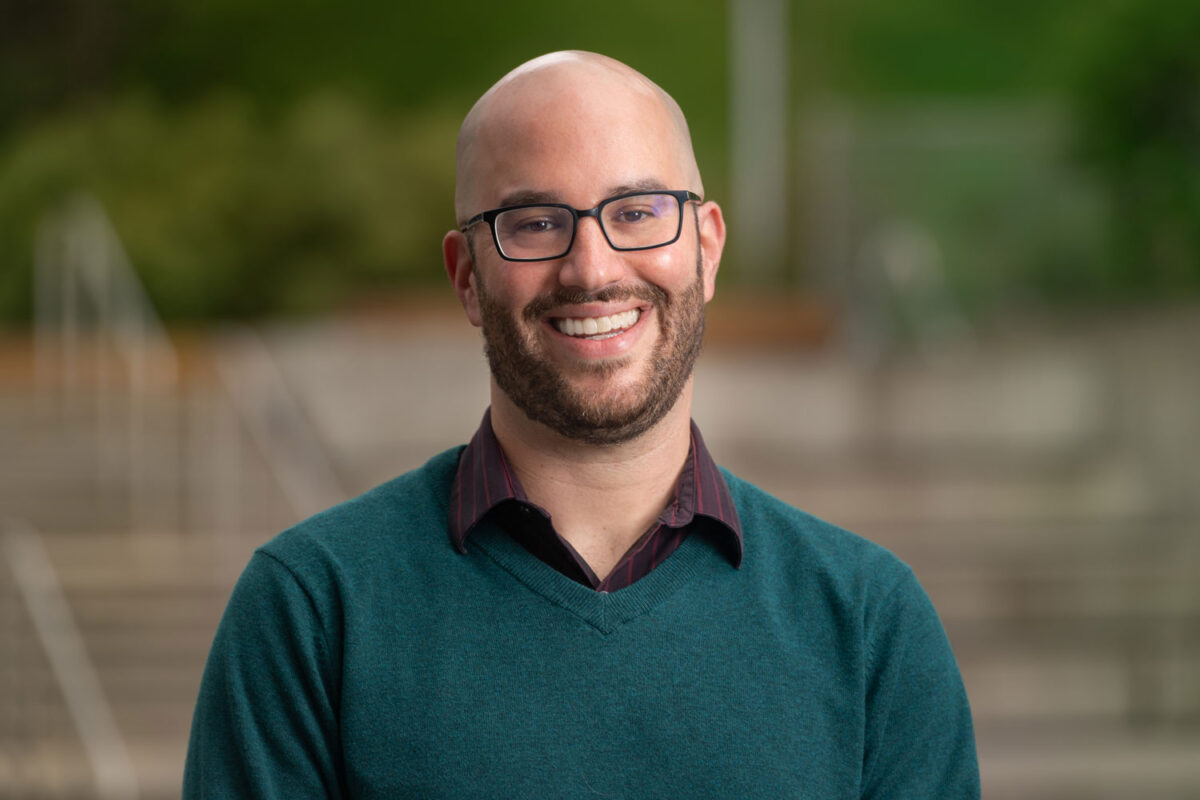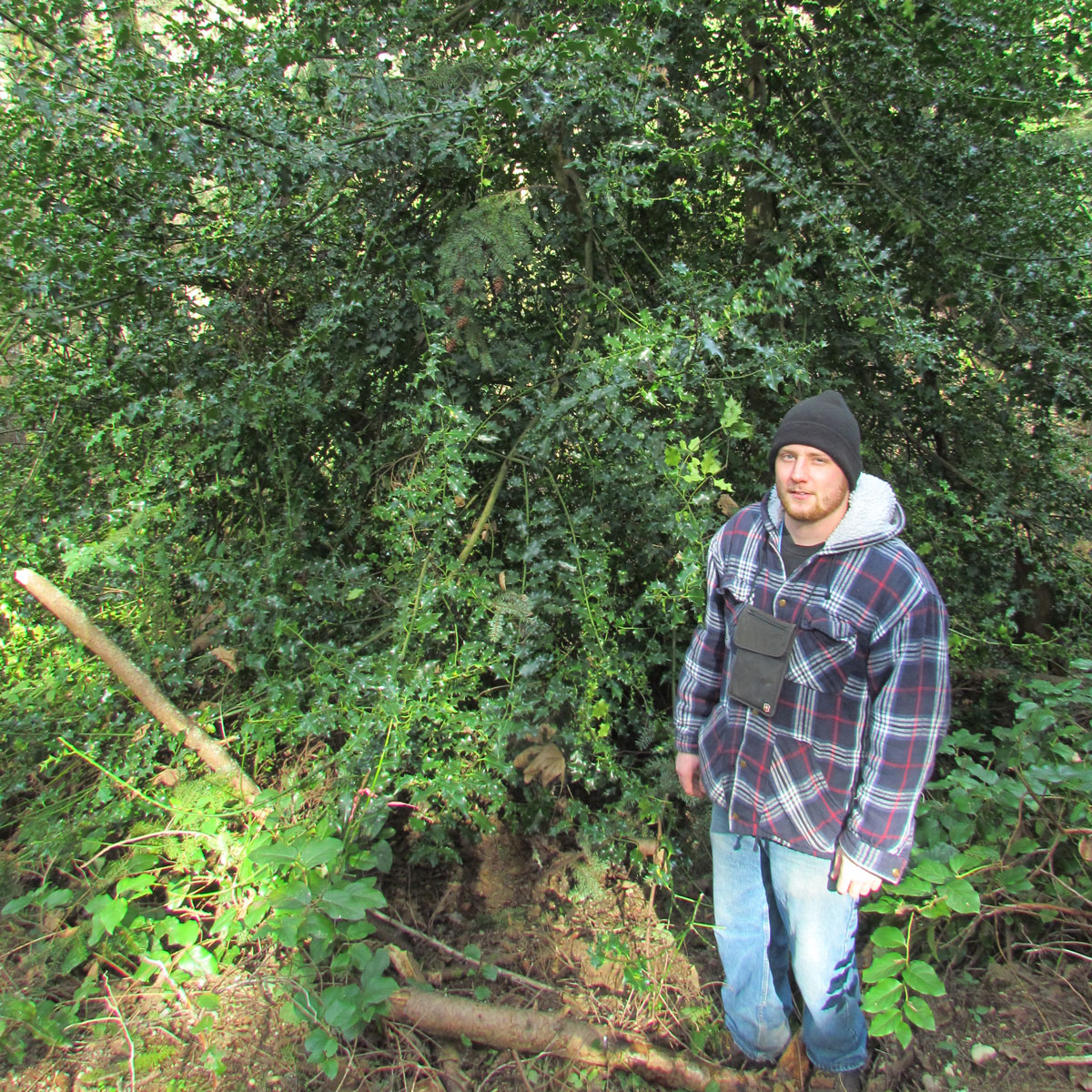As a young activist, Dr. Dan Berger found special inspiration in the Black visionaries of the ’60s and ’70s.
So how, he wondered, did we get here?
“Here” is an era of mass incarceration, he said, in which more Americans have criminal records than have union cards. And he has made it his life’s work to answer that question.
A University of Washington Bothell professor of comparative ethnic studies in the School of Interdisciplinary Arts & Sciences, Berger believes incarcerated and formerly incarcerated people are essential historians, storytellers and community members.
For his far-reaching efforts to discover their stories, involve them in his scholarship and share their findings with the public, Berger has received the UW Bothell 2025 Outstanding Community-Engaged Scholar Award.
“So many wonderful colleagues on our campus are focused on community engagement,” he noted. “It’s a great honor to work at a place that values that kind of work — that recognizes our work isn’t just in the classroom or on the page but in the world.”
A pocket full of social capital
Berger’s approach to scholarship and teaching grows out of a deeply held commitment to engagement and inclusion. “People who are or were in prison are very much part of our communities, including our campus,” said Berger. “Any discussion of who makes up our communities, and the issues that matter to us as a society, necessarily involves incarcerated people.
“Understanding the impact of prison is a constant reminder of our shared humanity and our shared connection to each other, whether we like it or not.”
To amplify the voices and experiences of incarcerated and formerly incarcerated people, Berger regularly features impacted community members as speakers in his undergraduate class, “The History of Mass Incarceration.”
The collaborations often expand beyond the classroom to include prisoners’ oral histories, articles and participation in conferences — people such as Vincent “Tank” Sherrill, who is a member of the Black Prisoner’s Caucus at the Coyote Ridge Corrections Center.
“In the BPC, we believe that the relationship is the highest value,” said Sherrill. “Living this value with Professor Berger has tendered me personally with a pocket full of social capital.”
He said he credits Berger with opportunities to collaborate with other members of restorative and transformative justice and abolitionist communities, including speaking engagements and participation on conference panels.
An overflowing mailbox
A donation of materials from Ed Mead, a formerly incarcerated man, led Berger to create the Washington Prison History Project in 2017. It has since grown into a grant-funded, multimedia archive that features prisoner-produced newspapers, photos, artworks, oral histories and even a computer game designed by Mead.
“I keep coming back to how much prison reveals about how social we are as a species,” said Berger. “We see this through the prison newspapers in the WPHP collection — how much people will strive against the odds to connect with others.”
For seven years, the WPHP was a volunteer-run operation that depended largely on Berger and UW Bothell librarian Denise Hattwig as co-curators. That changed dramatically when the Mellon Foundation awarded the Washington Prison History Project a three-year, $1.75 million grant last year.
Now there are three full-time staff members dedicated to the WPHP, including an outreach manager who has contacted people at every prison in the state. The goal: Expand the archive and create a fuller record of prisoners’ experiences.
The response has been enthusiastic, Berger reported. The WPHP mailbox overflows with letters from incarcerated people. “In the last four months, we’ve probably accomplished more than we did in the last four years,” he said. “It’s night and day the difference that having money makes.”
An essential research endeavor
As part of the WPHP, Berger also advised School of Nursing & Health Studies graduate student Sydney Pope as she researched the impact of the COVID-19 pandemic on prisons and the people in them. This work required unearthing and reconstructing the COVID-19 documentation that the Washington Department of Corrections had removed from its website.
Berger and Pope, who received her master’s degree in Community Health & Social Justice in June, intend to make the work publicly available for future policymakers and researchers. The COVID-19 project also aims to provide a platform for written accounts, artwork and oral histories from people who were incarcerated during the pandemic.
“Direct input from incarcerated people guides every aspect of the project,” said Pope. “Professor Berger and I believe that giving incarcerated individuals a platform in which they have complete agency over their stories is the most crucial aspect of this project.”
Pope also expressed praise for Berger’s generosity with his time, expertise and social connections.
“Although I am not a student in the School of Interdisciplinary Arts & Sciences, he has spent countless hours mentoring me and helping to facilitate this project,” she said.
“Professor Berger and I believe that giving incarcerated individuals a platform in which they have complete agency over their stories is the most crucial aspect of this project.”
Sydney Pope, Community Health & Social Justice ’25
A captive nation
Berger is the author of several books about prison, prisoners and Black Power and is now working on a new project, “Prison: A History of the United States,” that will tell the history of the country from settlement to the present day through the lens of incarcerated people.
And there are no shortage of experts, Berger said, noting that more than 70 million people in the U.S. have spent time in prison.
“Incarceration is an index of inequality,” he said, “particularly in the United States, which has the world’s largest prison system.”
In response, by asking how we got “here” and what can be done about it, Berger’s scholarship shines light on the experiences of incarcerated people — their voices, their activism, their insights.
Sherrill, from inside the prison system, called Berger’s efforts transformative.
“His work educes inherent knowledge lying dormant inside this captive nation,” Sherrill said, “and ignites the illumination that guides us towards our individual and collective power, and ultimately towards our liberation.”




